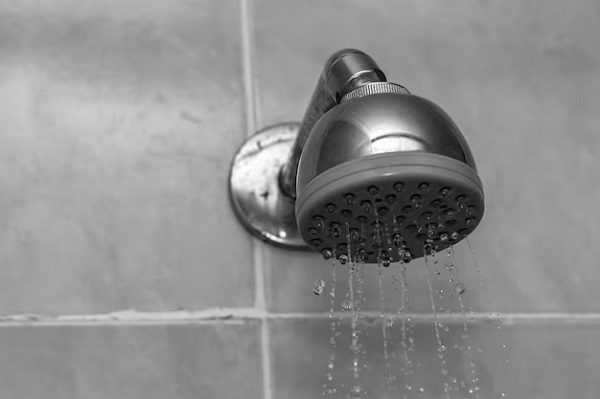
How to Deal With A Leaking Shower: A Comprehensive Guide
A leaking shower may not be a very common household issue but more often than not people do face this issue. If not addressed promptly it can lead to significant water damage. Whether you are dealing with a minor drip or a major leak, if you understand the causes, follow proper inspection methods along with repair options, and take preventive measures, all of these combined can save you time & money. In this comprehensive guide today, we will walk you through everything you need to know about leaking showers.
Understanding the Causes of a Leaking Shower
A leaking shower is never the result of a very simple issue, rather it arises from various issues, ranging from simple to complex. The most common causes of a leaking shower are:
Clogged Shower Head: Constant water flow and water collection inside the shower head even when not in use, the shower head along with the shower holes develop salt and mineral deposition. When you continue to use such a blocked shower the water pressure can cause leaking from the joints as the deposited minerals gradually weaken them. This is the most common cause of a leaking shower.
Damaged Seals: Cracks, air gaps in the grout or seal around the shower can cause water to seep through. The reason here is the same as above and sometimes these parts develop rust as well. Now rust creates a different task for you as they are not very easy to clean. In short these build ups damage the seals and in turn cause water leak.
Clogged Drain: A clogged drain can cause water backflow which may eventually lead to leakage around the base of the shower.
Blocked Plumbing Pipes: Any blockage issues with the connecting pipes to the shower wall can lead to leaks.
Shower Leak Inspection
When it comes to leaking showers, detecting leaks can be both easy and tough job. Even though you can see water coming through a specific portion, sometimes the root cause may be somewhere else, out of your visible range. Here’s what you can do,
Visual Inspection: Check for visible drips or leaks from the shower head or faucet. Turn on the water and observe any leakage. Inspect the grout lines and seals around the shower for cracks or gaps. Look for water stains, discoloration, or mold growth on the shower pan and surrounding walls.
Check for Moisture: If you see dampen walls or you can hear the sound of flowing water from behind the walls then use a moisture meter to detect hidden moisture in the walls or floor around the shower. Place a sheet of toilet paper at various points around the shower base and seals. If it gets wet, you can be sanguine about a potential leak source.
Plumbing Inspection: Inspect the water supply lines behind the shower for any signs of leaks or corrosion. Check the shower drain and P-trap for blockages or leaks. Remove the drain cover and use a flashlight to inspect.
Professional Leak Detection: For complex leaks, specially the hidden ones, consider hiring a professional. They use advanced tools like thermal imaging cameras and acoustic sensors to pinpoint the exact location of leaks.
Professional Leak Repair
Once you have identified the source of the leak, the next step is to repair it. Depending upon the cause and severity, you may or may not need professional assistance for effective repair.
Showerhead and Faucet Leaks: The small components like shower heads and the joints often develop rust. These rusty parts may cause blocked flow due to which leak may develop in future. Replacing them will fix the problem instantly. If the leaks still persist, consider installing a new shower head or faucet.
Old Seals and Grout: Remove old, damaged ones and apply new grout to seal gaps if these are the reason behind the leak.
Sealant Application: Use a high-quality silicone sealant to reseal the edges and corners of your shower. Everything wears off with time. Yet a high quality one will last you longer than the regular ones.
Plumbing Repairs: For leaks behind the shower wall, replacing damaged pipes may be a necessary step. You can hire a professional plumber to handle such complex plumbing repairs to ensure a supreme quality of work.
Shower Leak Prevention
Preventing future leaks is just as important as fixing the current ones. So here we are listing some very common but useful tips for you to prevent shower leaks, Perform regular inspections of your shower, check for signs of wear and tear on the most vulnerable places like seals, joints etc.
Invest in high-quality shower fixtures and fittings that are less prone to mineral build ups. Keep your shower head holes clean, free from any depositions to ensure smooth water flow. Use waterproof durable materials for the sealing and grout.
If any issue arises at any time, act on them promptly. Keeping them under control is the best practice to prevent bigger plumbing failures. Do not ignore small leaks also, they may lead to some major problems in the future. Regularly clean your shower drain to prevent clogs and water backup in the future.
Try to get a professional plumber inspect your plumbing system at least once a year to catch potential issues early.
Conclusion
A leaking shower may seem to be a small problem but it can be due to something big happening outside of our plain eyesight. Only with proper inspection, repair, and preventative measures, you can keep your shower in proper functioning condition for years. Whether you decide to tackle minor repairs all by yourself or hire a professional plumber for more serious issues, you have to address leaks promptly in order to prevent water damage, plumbing hazards, waste of your time and to maintain a functional, comfortable bathroom. By understanding the causes of leaks, conducting thorough inspections, opting for professional repairs and following the guides to shower leak prevention when necessary you can enjoy a leak-free shower for almost a lifetime. Contact RDF Plumbing today to get a thorough examination of your shower and plumbing services.


